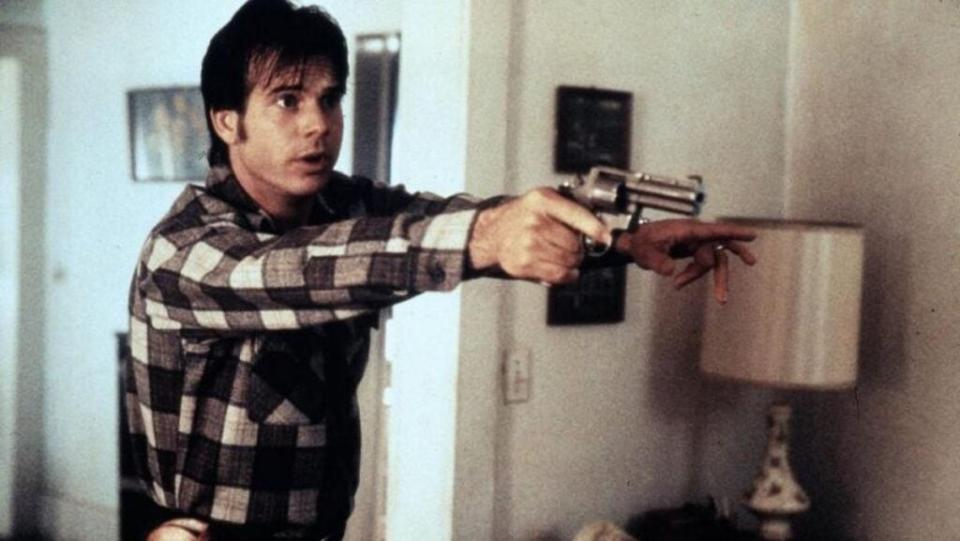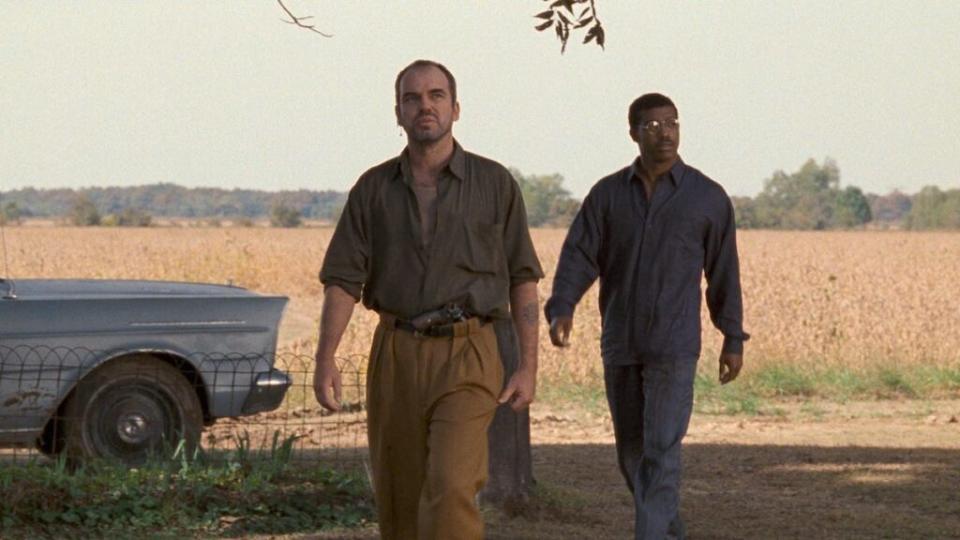Carl Franklin Says ‘One False Move’ Early Screenings Caused ‘Mass Exodus’ After Violent Opening Scene
Carl Franklin’s brilliantly dark breakout, the 1992 indie “One False Move,” is now out in a new 4k edition from Criterion Channel.
Franklin talked to TheWrap about why it was so important to show the “emotional” violence of the opening scenes, even though it had scores of people, and his his own agent, walking out of screenings.
He also discussed landing the late Bill Paxton, his first choice for the lead role of the na?ve small-town sheriff, Dale “Hurricane” Dixon, and how audiences were “legitimately frightened” of Michael Beach’s serial killer character.

TheWrap: It’s such a great role for Bill Paxton. How did he end up playing Hurricane?
Carl Franklin: [The] first time I ever saw Bill was in “Aliens.” He was perfectly the guy. Bill was who we wanted from the very beginning and we had to go through our dance to satisfy the studio because they were looking at Tim Robbins. He turned us down, and Jeff Daniels turned us down, and, finally, we were able to come back to Bill.
What did you think when you first read the script by Tom Epperson and Billy Bob Thornton?
There are certain scripts where it’s not just a story, and where it’s not just words that you are intellectually processing, but you can actually smell the environment. You can actually taste it and feel it, like you can almost touch it in your hands. That was the way I felt about “One False Move.” It was called “Hurricane” at that time [after Paxton’s character, Dale “Hurricane” Dixon]. It just had something substantive that was alive.
When it came out, it had enormous praise from critics, including Siskel and Ebert. But people also focused on the opening scene where Beach’s character stabs several people to death.
That was a problem. Honestly, if the production company had more confidence in this film, if they had actually taken it seriously, I don’t think we would have been able to make it. Those opening scenes, they kind of flew under the radar because I don’t think that they were paying that much attention.
Talking about those opening scenes, my own agent at the time came with two women [to a screening] and they got up and left because it was too much. And he went with them. So we were trying to get distributors who were there, and they got up once they saw him leave, and so there was this mass exodus. Folks had to get through those first couple of scenes in order to settle down, but it was necessary.
Because of the inverted structure of the script, because Dale was not active, we needed to establish very strongly what was coming toward him. That was why it was necessary for those scenes to have the emotional impact that they had. It was more emotional violence than anything else.
Did you ever consider cutting the opening?
Never. I didn’t want to cut it out. I was afraid it was going to be cut out and then the strength of the film would not have been there. It was really important for people to know what these people were capable of. Because you had this naive country police officer who thinks that he wants to be a big city detective and he’s got these killers coming toward him and is he up for the job or not?
The setup reminds me of a Western.
That was more of what I thought about then. Everybody talks about neo-noir. It may have, as a result, become neo-noir, but that was never a term that was thrown around at all. Western was something I thought about, that it did have a feel of a modern Western. In fact, in the script, there’s a reference to “High Noon.”

You just worked with Michael Beach again on the Netflix “Dahmer” series.
I hadn’t really had an opportunity up until then. He was on the other side of the desk this time, as a detective as opposed to a killer.
I was glad to see his career has been successful because I was worried about him. Everybody I would talk to about the movie would ask, “Who’s that Black guy with the glasses?” And [while the movie received won a Best Director Independent Spirit Award], he was not nominated or recognized by any of the awards groups. I think it’s because they were afraid of him.
I think [he got typecast like] Steve Railsback, who played Charles Manson, and Andy Robinson as the Scorpio killer in “Dirty Harry.” Because he was so good people just saw him as this killer. They were legitimately frightened. I sat in a couple of audiences in the back and when he was killed they applauded because they were that scared of that guy. He was a palpable presence.
Were they also applauding Billy Bob Thornton’s death?
I really think they were much more afraid of him than Billy Bob. Billy Bob was volatile, but Michael was enigmatic. The character was this intellectual, elusive murderer. You wonder, “Why is he doing this? Why has he resorted to crime?” He was always so quiet. Billy Bob was a lot more emotional and I think when people are more demonstrative about their emotions they’re a lot less threatening. The combination of the two of them [was] very threatening.
I saw this when it first came out and my memory was that Bill Paxton’s character does die at the end, whereas the film leaves it an open question. In your mind does he live or die?
Oh, I can’t tell you that. (Laughs). I think he lives. I don’t think he’s a police officer anymore after the wounds that he suffered, but I think he lives. I think that his coming together with his son [with Cynda Williams’ character] and with his past makes it complete. But he’s still got some “‘splainin” to do, as Desi Arnaz used to say. (Laughs)
You went on to direct the terrific “Devil In a Blue Dress” in 1995 with Denzel. It was not a huge box office success, unfortunately. But would you still want to do another Easy Rawlins movie?
Yeah, it depends. Sure. I mean, I had a good time on that.
The post Carl Franklin Says ‘One False Move’ Early Screenings Caused ‘Mass Exodus’ After Violent Opening Scene appeared first on TheWrap.